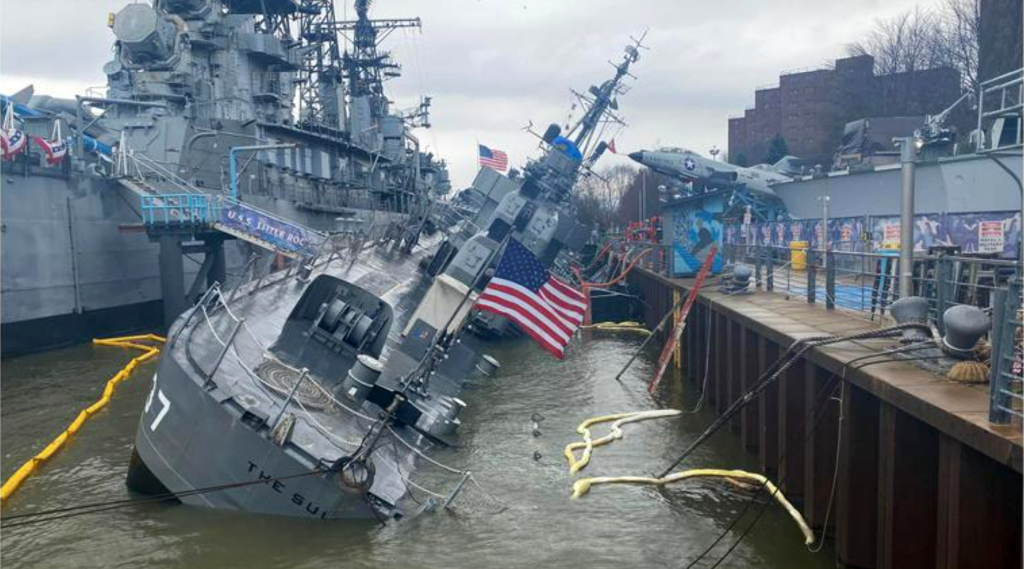One of the great tragedies of World War II, when five brothers were lost on the same ship, is remembered at two museums.
-
Winter 2024
Volume69Issue1
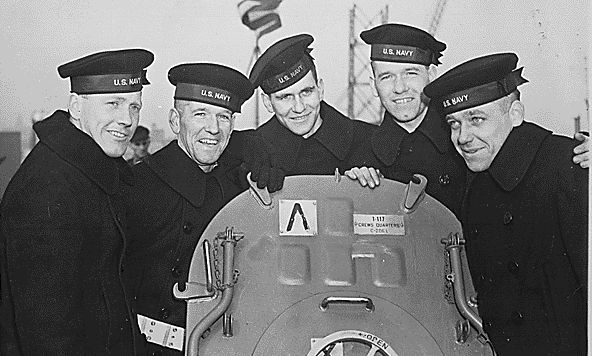
On November 13, 1942, five Sullivan brothers from Waterloo, Iowa – George, Francis, Joseph, Madison, and Albert – died when the light cruiser USS Juneau was torpedoed and sank off Guadalcanal during World War II.
It remains the greatest combat-related loss of life by a single family in American military history.
Two weeks before, Juneau had fought in the Battle of the Santa Cruz Islands in the Solomon Sea and helped turn back the Japanese counterattack against US Marines on Guadalcanal.
Then, two weeks later, in the naval battle of Guadalcanal, Juneau was part of a screen protecting transports and cargo vessels when 30 Japanese planes attacked the task force. Juneau’s anti-aircraft fire was effective, shooting down six enemy torpedo bombers. But, in the nerve-wracking battle, Juneau was hit by a torpedo from a Japanese destroyer and forced to withdraw.
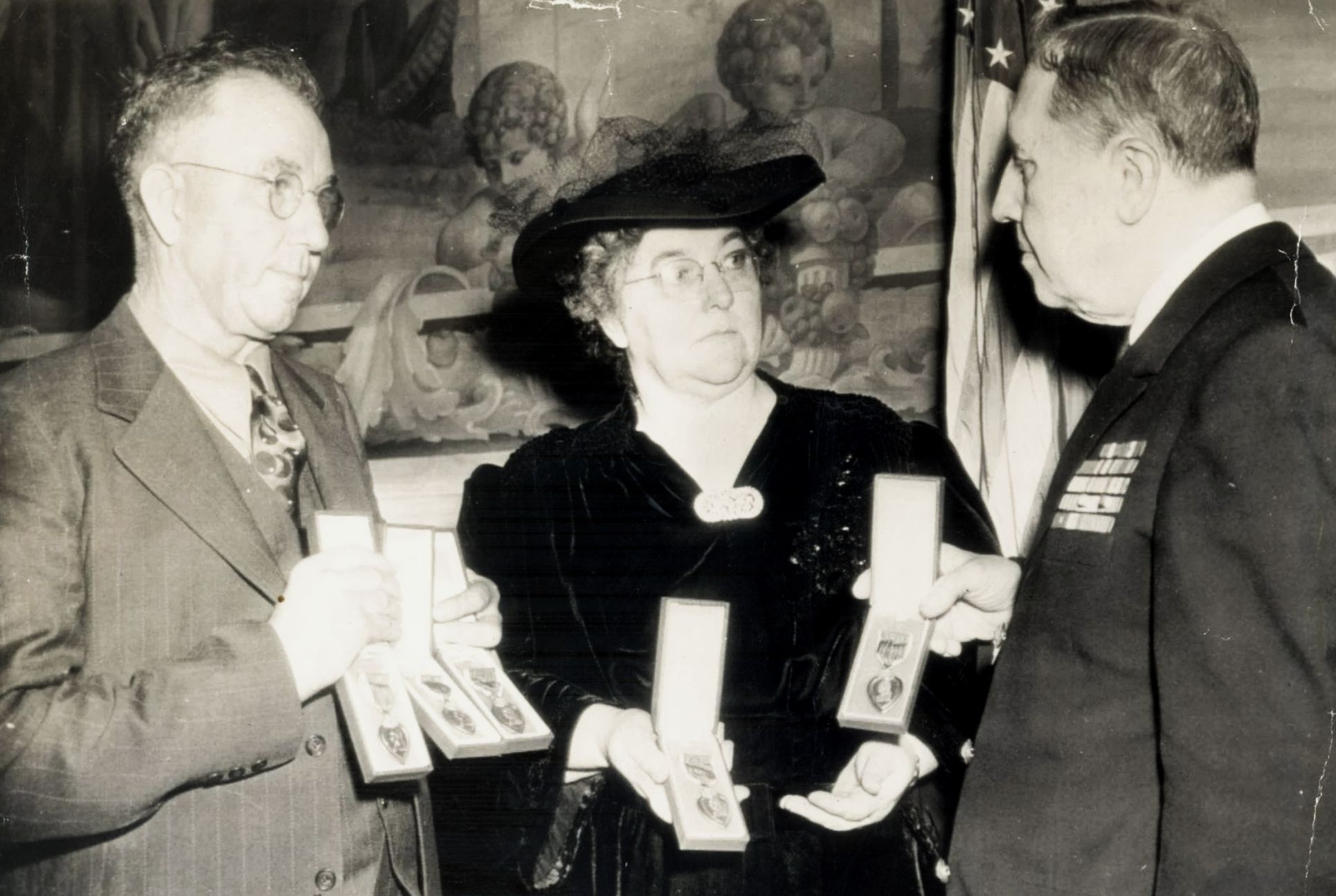
On the morning of November 13, this ship and two other damaged cruisers were limping south for repairs when a torpedo struck Juneau in the same place it had been hit during the battle. There was a massive explosion and the ship broke in two and disappeared in just 20 seconds.
Fearing more attacks from the Japanese submarine, and wrongly assuming from the massive explosion that there were no survivors, the other two cruisers, Helena and San Francisco, departed without trying to rescue any survivors. An estimated 100 sailors, including two Sullivan brothers, were left in the open ocean, prey to shark attacks and the elements. Only ten men survived until the rescue eight days later.
In total, 687 officers and sailors, including the five Sullivan brothers, were killed in action as a result of the cruiser's sinking.
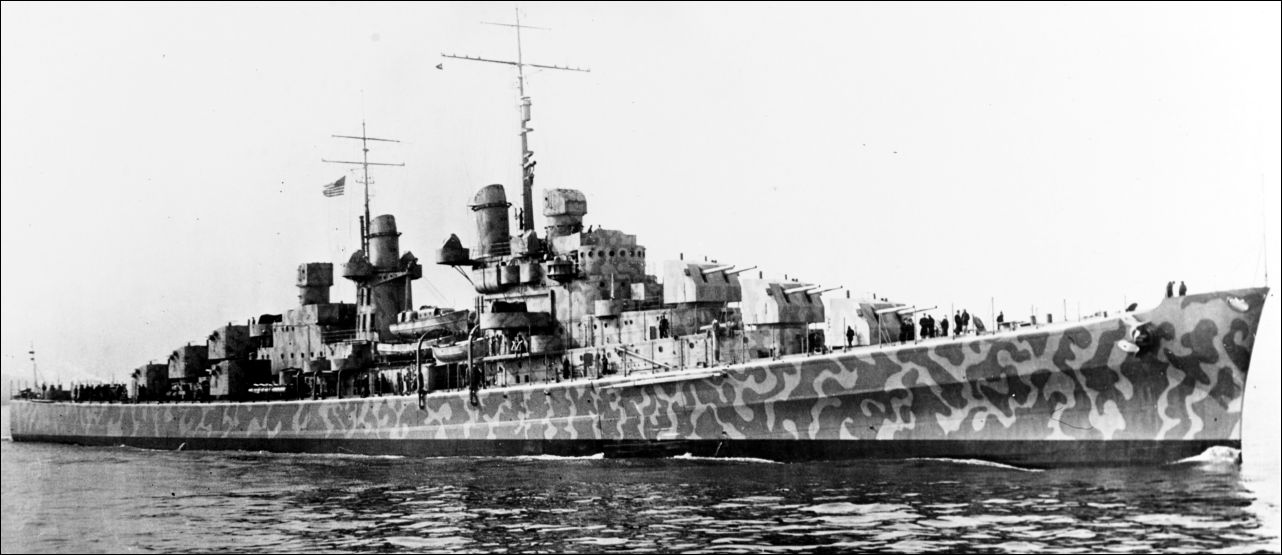
But, back in Waterloo, Iowa, the parents of the Sullivan boys went weeks without official news as rumors swirled around the town.
Mrs. Sullivan finally wrote the Navy begging for information. “A mother from here came and told me she got a letter from her son and he heard my five sons were killed,” she wrote. “It is all over town now, and I am so worried...Please tell me.”
It wasn't until January that the Sullivans got official confirmation that all their sons were dead.
A few months later, Franklin Roosevelt wrote the parents. "I want you to know the entire nation shares in your grief," the president wrote. He praised Mrs. Sullivan for agreeing to help christen a new destroyer in their name.
The following spring, the family traveled to San Francisco to help launch the new destroyer, USS The Sullivans. Alleta Sullivan climbed up on the bunting-covered scaffold to perform the ceremony.
“I am proud to be here today to christen this lovely ship in the names of my boys,” she said. “I only wish that my boys could be here and see this warship.”
The event was too much for Alleta. “Heart-broken and emotion-wracked, the Iowa housewife who has become a nation's heroine could stand no more,” recalled a reporter for the Hearst papers. “Sobbing, she appeared on the verge of collapse, and doctors who attended her forbade her attendance at a great civic luncheon and reception following the launching.”
The Sullivans made dozens of appearances that year promoting the purchase of bonds to support the war effort.
On January 25, 1944, Rear Admiral Clark H. Woodward presented five Purple Heart medals posthumously to Thomas and Alleta Sullivan on behalf of the Department of the Navy. He praised the parents' fortitude - for "keeping their chins up."
“Keep your chins up and we’ll keep ‘em flying” was the closing line that one of the brothers, Joseph, known as “Red,” frequently used in letters home.
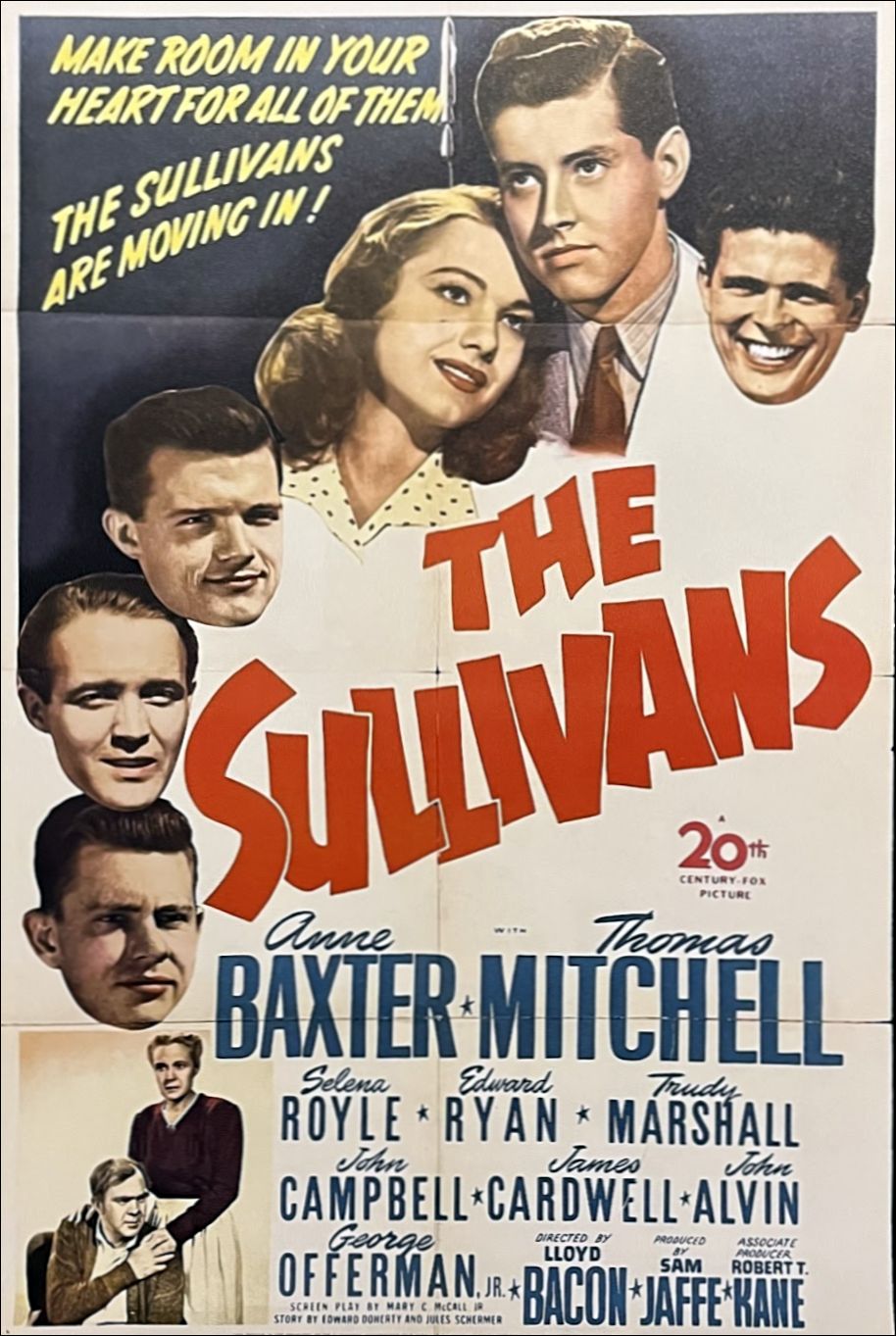
As if the loss of so many lives wasn’t enough pain for one family to endure, after the war, the Sullivans' home was destroyed in a flood and the Purple Hearts were assumed to be lost.
But two of the five medals were found in the wreckage of the home and were kept since in a safe deposit box until they were recently loaned for display at the Society of the Cincinnati headquarters in Washington, DC.
“This is the first time these medals have ever been displayed publicly,” explains Anderson Morse, executive director of the Society. “Albert Sullivan, the only boy of the family who had children, has a lovely granddaughter named Kelly Sullivan who teaches third grade in Waterloo, Iowa. She’s now the custodian of these two remaining purple hearts.”
The ship that Alleta Sullivan christened, USS The Sullivans, went on to fight in the Pacific theater, shooting down eight Japanese planes, bombarding Iwo Jima and Okinawa, and rescuing American pilots and crew from burning or sinking vessels. It also saw action during the Korean War and the Cuban Missile Crisis.
The ship was decommissioned in 1965 after earning 11 battle stars for meritorious performances. She was named a National Historic Landmark and moved to the waterfront park in Buffalo, NY.
But, last year, the ship was badly damaged during the April blizzard that dumped up to 96 inches of snow on Buffalo. The Sullivans listed badly and sank to the bottom of the harbor.
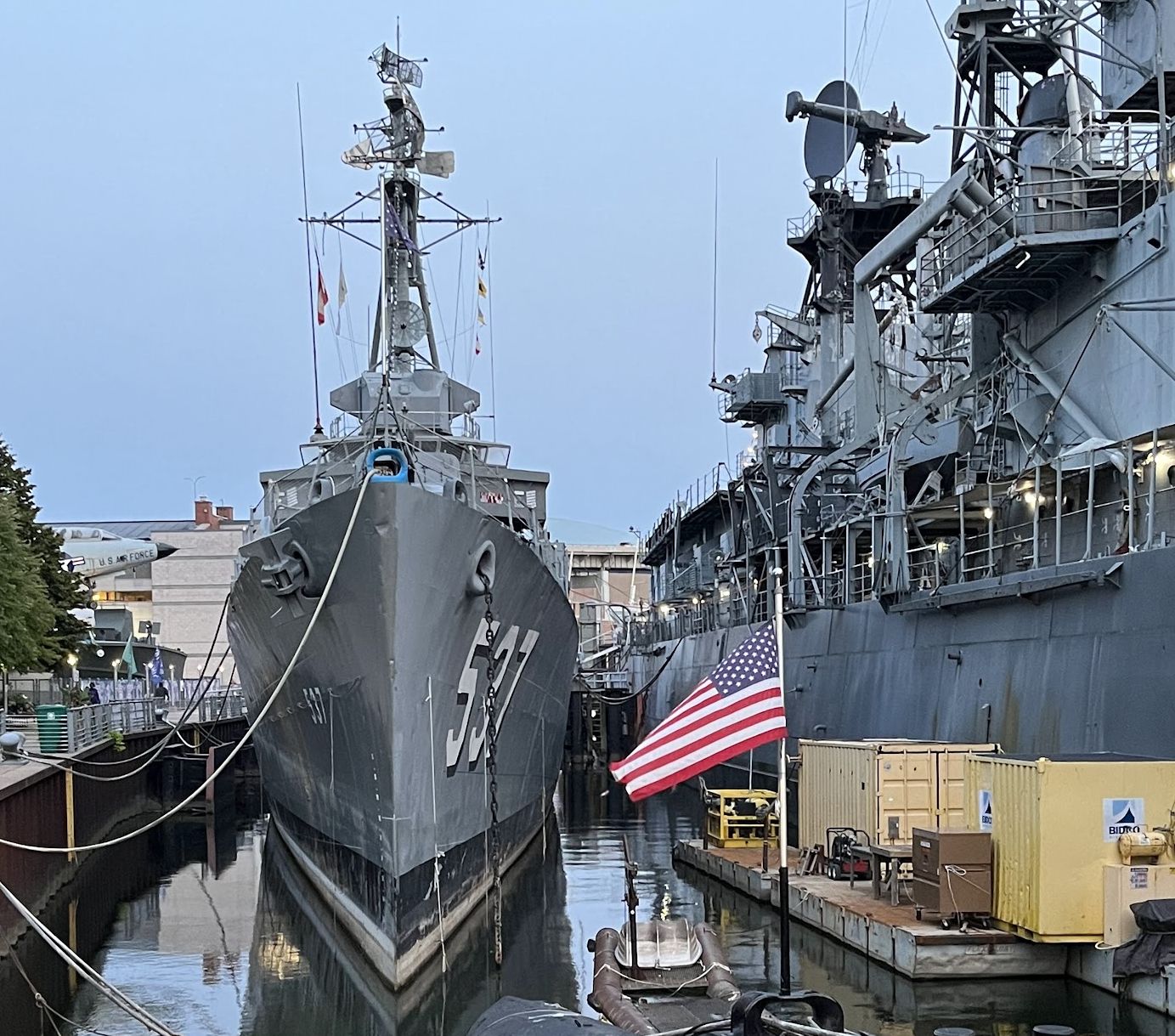
“This ship will be saved,” insisted Paul Marzello Sr., president of the Buffalo Naval & Military Park, at a press conference. “We will right this ship and it will not go down.”
Dozens of pumps were brought on board, removing up to 13,000 gallons per minute. Emergency responders saved the 3-D model of the destroyer, letters to the Sullivan brothers, and two original flags — including one that flew on the mast of The Sullivans during fighting near Iwo Jima and Okinawa.
Many of the rooms sustained significant damage, including the engineering room and ship office, which were about 70% submerged, and the berthing areas and mess deck, which were about half under muddy, oily water.
The Buffalo naval park was able to reopen The Sullivans to the public for tours on deck, and the curatorial staff issues monthly reports on the remarkable progress to restore the vessel below deck. But much work remains to be done on this ship with 80 years of history.
